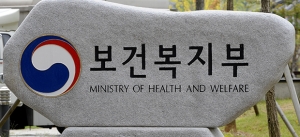A public-private consultative body to discuss bioethical issues amid the ongoing fourth industrial revolution held its inaugural meeting Wednesday.
The Ministry of Health and Welfare has activated the government-civilian council to examine social and ethical problems of policy issues concerning future technology, including genomics and artificial intelligence.

“As the fourth industrial revolution progresses by combining various areas such as digital, physics and biology, scientists and researchers are attempting to develop new life science technology to overcome diseases,” a ministry official said. “That forces us to modify related regulations and launch the discussions of ethical issues,”
Professor Lee Yoon-sung of Seoul National University, also director of National Bioethics Policy Institute, and Kim Kang-lib, head of the ministry’s Health and Medical Policy Office, will co-chair the deliberative council, composed of 17 experts representing various related fields.
It will begin activities next month and run through July, covering such diverse issues as new fusion research, artificial embryos, organ transplant research, chimera research, hand and face transplantation, and artificial intelligence, among others.
The council will also consider enacting basic bioethics law, introducing the Ethical, Legal, and Social Implications (ELSI) system, and the overall direction of bioethics policy.
"It is imperative for us to respond to social and ethical issues preemptively and find solutions to the fourth industrial revolution," Minister Chung Chin-yeob said. "To overcome diseases and promote public health, the council should conduct in-depth discussions to draw rational improvement and social consensus so that we can develop future technology and consider ethical aspects of the fourth industrial revolution in a balanced manner."

